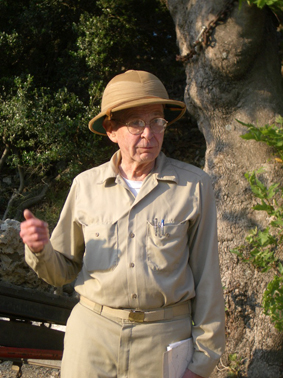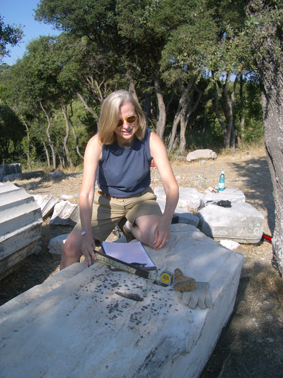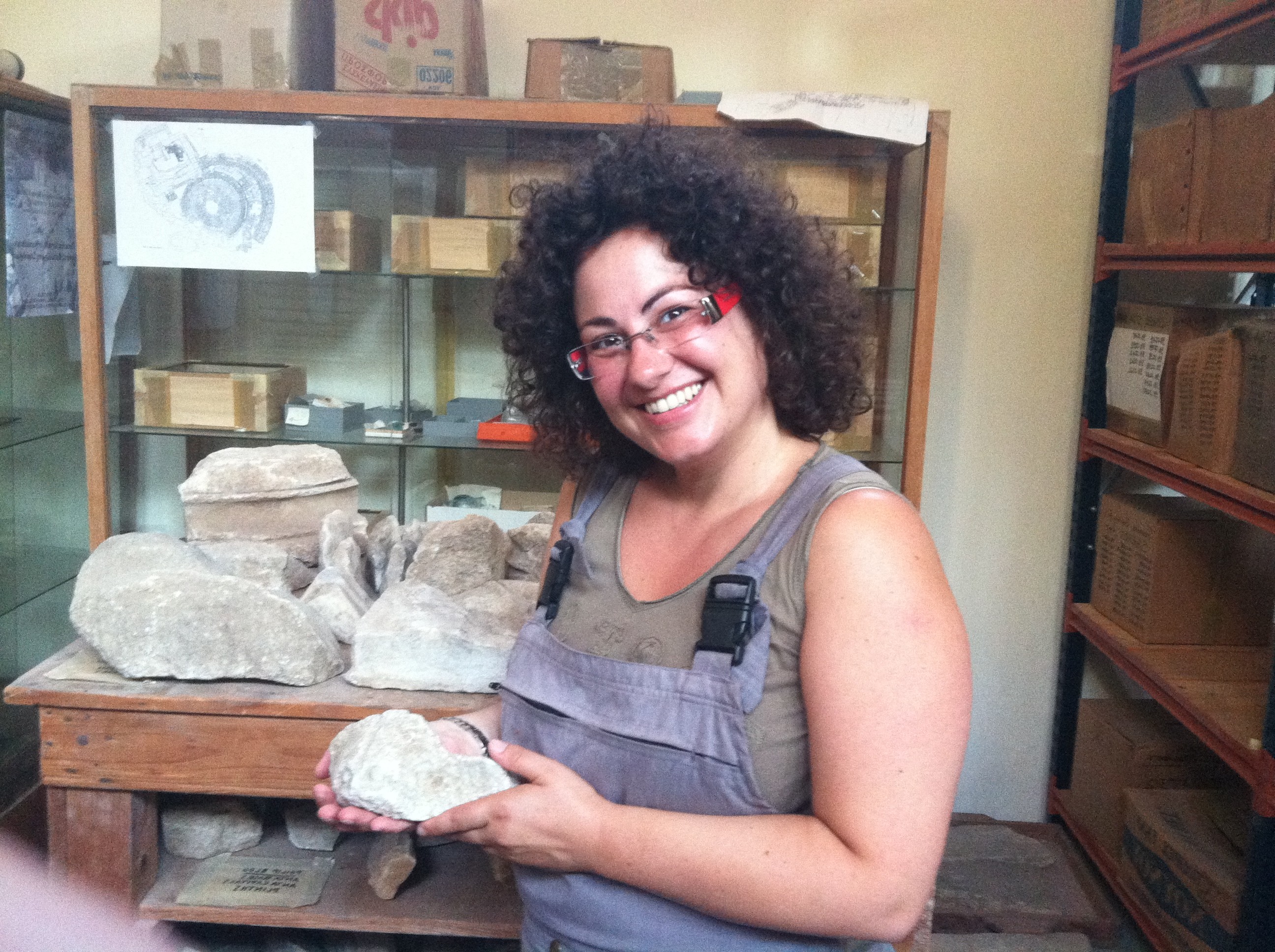How to Become an Archaeologist
When I was a child, one of my favorite vacation activities was visiting Roman ruins. When touring an archaeological site, I wondered about the people who, in ancient times, had lived in the homes and prayed in the temples. I also wondered about the people who uncovered and interpreted the ruins millennia later: the archaeologists.
There are many different types of archaeologists, from art historical archaeologists who uncover and study sculpture to anthropological archaeologists who dig up skeletal remains in order to understand ancient food consumption. At Samothrace, our team includes several types of archaeologists, each of whom took different paths to get where they are today. Three of them sat down with me to discuss how to become an archaeologist. Read on for their excellent advice.
Name: James R. McCredie
Title: Director Emeritus of Excavations, Sanctuary of the Great Gods, Samothrace
Professor Emeritus, Institute of Fine Arts, New York University
What type of archaeologist are you?
I am a classicist by training and a historian and I got into archaeology that way. I have tried to fill out the story of Greek antiquity by finding things that might help. In other words, I have tried to understand history through material culture.
What is your educational background/training?
I did a classical diploma at Exeter and then I went to Harvard and did Greek history and literature. I got into that because the Greek historian had no one doing Greek and said “You will do Greek” and so I did. He said, “Do something useful,” so he sent me out to Gordion in Turkey to dig, and I thought that was fun and spent three summers there. Then a friend of mine had a little dig on the coast of Attica, called Koroni, which set Hellenistic history on its ear, so I put that together. Then I had a telegram at Cambridge, where I was a second year graduate student, saying, “Come to New York and talk about Samothrace,” so I was railroaded into it! And I’ve been working here ever since.
What advice would you give to a young person who hopes to become an archeologist?
See if you can participate in an excavation and see if that’s fun or interesting. I wasn’t entirely sure when I got out of college whether I wanted to be a classicist or an archaeologist. I spent a year at the American School and I thought that was fun. I liked being at Harvard, so I stayed there for graduate school. Harvard had just one faculty member doing archaeology, but if I had gone to Bryn Mawr or Penn, there would have been more people for me to work with. But it worked out alright!
Name: Bonna D. Wescoat
Title: Director of Excavations, Sanctuary of the Great Gods, Samothrace
Associate Professor, Emory University
What type of archeologist are you?
I am an architectural historian and I’m particularly interested in sacred architecture. I am particularly interested in the spaces where things happened and how they were shaped to heighten religious experience. Therefore my first task is to understand how buildings go together and how they fit in the landscape.
What is your educational background/training?
I went to Smith College, where I studied art history and then the Institute of Archeology in London and then Oxford. I studied Roman archaeology at the Institute of Archaeology and then I switched over to Greek archaeology. I was lucky to work with really fine professors. I always loved archaeology. I came to Samothrace my first year of graduate school and fell in love with the island and the Sanctuary.
What advice would you give to a young person who hopes to become an archaeologist?
Don’t be afraid to follow your passion. Travel to see ancient places and sites. Study world languages and ancient languages because, while archaeology relies on discovering things, knowing the ancient languages and the languages of modern scholars will make you part of the world community. This is one of the best parts of archaeology, the wonderful people you meet who also love the field.
Name: Voula Tritsaroli
Title: Archaeologist, Sanctuary of the Great Gods, Samothrace
What type of archaeologist are you?
I’m an anthropologist. I don’t specialize in a particular period. I study burial customs in order to understand the social structures and societies’ behaviors towards the dead. I began studying the Byzantine period, but I have also studied the prehistoric and classical periods. When I look at burials, I try to combine both archaeological and biological data.
What is your educational background/training?
I went to my first excavation here [on Samothrace] in 1997. I was an undergrad and was interested in prehistory. I went to graduate school in Paris at the National Museum of Natural History and I studied paleoanthropology and geology. I wrote my dissertation on Byzantine burial customs from central Greece.
What advice would you give to a young person who hopes to become an archaeologist?
I would advice him or her to that if he likes or has passion for this field, just do it!



